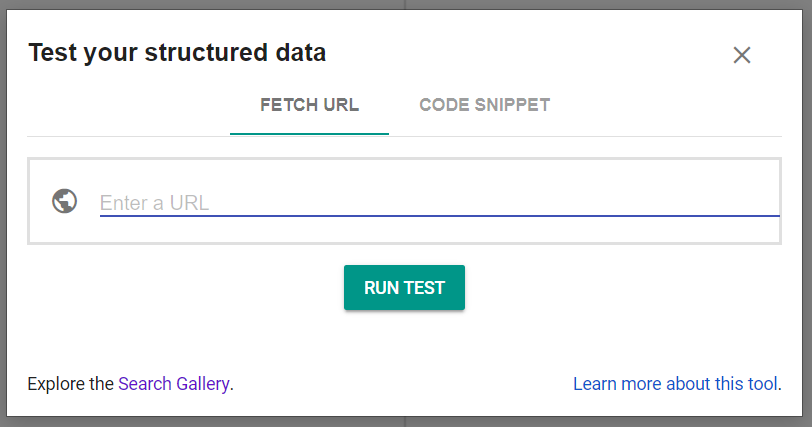
Confused about JSON-LD? You’re not alone.
This little acronym plays a pretty major role in Google’s ability to index your content.
In this article, I’ll explain JSON-LD SEO, why it’s important, and how you can use it.
What Is JSON-LD Code?
JSON-LD (JavaScript Object Notation for Linked Data) offers a simpler means to create machine-readable data from websites to promote search results.
In simpler terms, it delivers more easily indexable content to search crawlers like Googlebot.
JSON-LD offers syntactic simplicity found with the traditional JSON but offers more inherent meaning.
As a result, Google and Bing are embracing JSON-LD because structured data allows developers to easily organize and connect data. This creates a better website in the eyes of humans and Google.
The lightweight data format will enhance a website’s performance as all data is seamlessly linked across the internet.
How Does JSON-LD Work?
JSON LD or JSON-LD works by annotating the different types of elements appearing on web pages. In the process, this data helps create a specific structure for the web page to give more context to search engines. Google and other platforms can then use this structured data to better understand the content and nature of a page, which allows for easier crawling and indexing.
In other words, JSON-LD schema helps search engine bots comprehend your website, which can help with indexing and SEO, supplementing other digital marketing efforts.
Where Does JSON-LD Schema Go?
Unlike microdata, RDF, or microformats, JSON-LD is embeddable in a <script> in the page’s <head> and just about anywhere else instead of having to be present in the page’s <body>.
<script type=“application/ld+json”>
{your code}
</script>
It’s also possible to have Google crawl dynamically generated tags appearing in the Document Object Model (DOM) structure of HTML documents.
JSON-LD Nesting
Nesting is the term used to define information that is organized in layers. This is an important component for accurately marking up Schema.org JSON-LD.
Nesting for JSON LD or JSON-LD will entail using certain immutable tags that don’t change at all. The static nature of these tags makes them easy to use. Simply copy/paste the following tags and modify them based on more specific elements.
Nesting in JSON-LD starts with the item property which specifies the item type. The item properties will belong to item types that are unique.
For example, an item property “name” can be an event name, person name, or name of a place. In the example below, the name of the performer and venue are both nested.
In the first item type, (ex. Performer) you would first match it with the item property (ex. actor, director, singer). The item property is then identified by opening curly brackets with the new item type (“@type”:) and attribute/value data.
A type could also include nearly any Action, Person, Place, Product, Event, or another type of thing, with subtypes underneath those item types. Getting granular with these details can give search engines a highly specific context that helps with SEO.
Another element you’ll want to incorporate is “@context:”. You can include this code in the following format: class=”redactor-autoparser-object”>http://schema.org”
This code is crucial as it lets the browser know what each element on the page means according to the definitions found on schema.org.
When used the right way, these immutable tags can contribute to an advanced SEO strategy that helps you get ahead of competitors neglecting to use JSON-LD.
Why is JSON-LD Schema Important for SEO?
JSON-LD harnesses more power for people who publish and access information on the internet. It’s simpler for people to read and write, and creates a network of standards for machine-readable data from websites to promote the indexing process.
Think of it as a spider web of sorts. An application begins with one piece of Linked Data and then is followed by other pieces of Linked Data from embedded links that are hosted on different websites to promote search results.
“High-quality structured data must not create a misleading or deceptive experience for search users,” says Google. “It should be an accurate reflection of the topic and content already found on the page, such as text, images, and videos.”
With the foundation of the existing JSON format, developers are able to easily transform their current JSON to JSON-LD to better describe the content of their website to search engines. Search engines are then able to understand your web pages and feature your content more relevantly through simplified web development.
An example of JSON LD schema could include a person and various details about them, starting with @type “Person” and followed by a plethora of information. Other details about this person could include the person’s email address, image, job title, name, birthplace, birth date, gender, nationality, and any other relevant demographics as schema.org defines them.
What’s the Difference Between JSON-LD and JSON?
JSON-LD is very similar to traditional JSON, but it offers a few more benefits that are directly derived from schema.org compatibility.
JSON, by itself, stands for “JavaScript Object Notation.” It’s a data format that’s easily readable by humans and computers alike.
By the way, in case you’re unfamiliar with JavaScript, it’s a software programming language that’s often used for websites. Generally, JavaScript does a lot of the “heavy lifting” in terms of handling UI logic.
For example, if you press a button on a website, it’s likely that some JavaScript code will handle the task that’s supposed to occur when you press the button.
The reason JSON uses “JavaScript” in its acronym is because the data format was designed for JavaScript. It’s often the case that when JavaScript makes web service calls under the covers, it will expect data in JSON format.
If this all sounds like too much “geek speak” for you, then it’s probably best to outsource your JSON-LD efforts to a qualified web developer. Otherwise, you could do more harm than good to your website.
JSON-LD allows you to provide more in-depth and consistent web components. The data is better absorbed by search engines to improve page indexing, which may result in search results displaying rich snippets.
Since schema.org basically does the hard work for you, there’s no need to learn a new structure. Instead, you’re able to build a more complex system using compatible web components to create developer and search engine-friendly data.
How Does JSON-LD Work?
Now that I’ve answered the question “What is JSON-LD?” Let’s take a look at how it works.
The data from your webpage is used in a structured means with schema.org vocabulary that has been embedded into your webpages with a JSON-LD snippet.
When combined with custom Web Components to define a distinctive aspect of the user interface and a Custom Element to define the behavior of your Web Component, you’re able to share and reuse across other web pages to simplify website development.
However, Google offers a word of warning, saying, “In general, Google won’t display any content in rich snippets that is not visible to human users. Google will ignore content that isn’t visible to human users, so you should mark up the text that visitors will see on your webpages.”
Since Web Components and JSON-LD for SEO complement one another, the Custom Element functions work as the presentation layer while the JSON-LD functions work as the data layer. So, human visitors will easily view your information while Googlebots are better able to retrieve information for indexing.
You can think of JSON-LD as metadata. In other words, it’s data about data.
In the case of your web page, the JSON-LD code tells Googlebot a little more info about the contents of your web page. That way, the search algorithm will know when to surface it in response to a specific user query.
Common JSON-LD Schema Mistakes
If you’re having trouble getting your markup validated, then you could be facing some common JSON-LD mistakes. Did you:
- Check your Syntax – “ ” is not the same as ” “. One is curly, and one is straight.
- Only use the allowed vocabulary – Schema.org lists the required/allowed properties within the item type specifications.
- Include all annotated information – information that is not on the page, but is annotated, will most likely not appear in search results.
- Check your formatting – Copy/pasting from Microsoft software like Word and Excel can create added style formatting that could break your markup.
What Changes Will I See?
Google supports JSON-LD syntax for company logos, contacts, social profile links, events in Knowledge Graph, event-rich snippets, and site link search boxes.
With structured markup, you’re able to alert Google to the types of content on your site, then direct Google where to take the internet user when they perform a search. This is very beneficial for featuring events in the knowledge graph because you can promote ticket sales and location-based events easier and more effectively.
In addition, businesses can use structured data to markup and modify how social networks are displayed in the knowledge box.
Google will recognize social profiles when you publish a markup on a page within your website that’s unblocked by Google bots. However, be sure to include a person or organization in the markup by specifying your website’s URL or the URLs of your social media profiles. Then, insert the script anywhere on your page for Google to start indexing and displaying your profiles in the search results.
Google is working to support other features in the future as development grows.
JSON-LD SEO: Testing Your Structured Data
To test how if your structured data is effective, use Google’s Structured Data Testing tool to help your content get discovered higher in search results.

JSON-LD: use Google’s structured data testing tool
You can also take a look at Google’s in-depth documentation on structured data for more information and a thorough guide to enabling it.
Wrapping Up JSON-LD
JSON-LD is just another reason the world of SEO is diversifying to promote the search experience for internet users as search engines provide more relevant results. From a business standpoint, you’re able to leverage JSON-LD in your favor to paint a clearer picture of your site’s content to allow Google to index your content to increase visibility. It’s a simple and effective means to boost your ranking by transitioning your existing data.
Now is the time to start linking your data with JSON-LD for better indexing with the next generation of search engine communication tools.
JSON-LD Frequently Asked Questions
1. What are the disadvantages of JSON-LD?
While using JSON LD or JSON-LD comes with certain benefits, there are potential disadvantages to consider.
For instance, you might have a problem with indexing via JSON if you use MySQL. MySQL doesn’t currently support the columns used in JSON structured data, meaning that search engines may not be able to index these columns directly.
2. What is the difference between JSON and JSON-LD?
You might wonder what the difference is between JSON and JSON-LD when new to these concepts. There are somewhat subtle differences to consider.
Put simply, JSON schema helps describe large volumes of data in a way that works like an XML schema, making data machine-readable. Meanwhile, JSON-LD works more like schema.org structured data to describe certain objects and elements on web pages, making it possible for machines to not only read but understand data.
In this way, JSON LD or JSON-LD is potentially more effective for crawling and search engine optimization than the JSON markup language.
3. Is JSON-LD better than microdata?
When comparing the two, you may be curious to know whether JSON-LD is better than microdata for web content.
What makes them different is that JSON-LD schema entails incorporating a JavaScript object into your pages’ HTML, defining data in the process. Meanwhile, microdata defines data through the use of HTML attributes and tags.
If you’re not sure which to use, Google’s structured data guidelines recommend using JSON LD or JSON-LD instead of microdata to define a website’s data.
Want to Get the Most Out of Your SEO Strategy?
Ignite Visibility has a team of expert digital marketing professionals. We leverage the power of SEO to help businesses improve their on-page optimization, boost organic rankings, and achieve their marketing goals. Our expert strategists work closely with clients to understand their unique needs and design customized SEO strategies that maximize return on investment. Whether it’s creating optimal content or catering to user intent, we handle every aspect of SEO to ensure our clients receive optimal results.
Want to learn more about our search engine optimization services?

